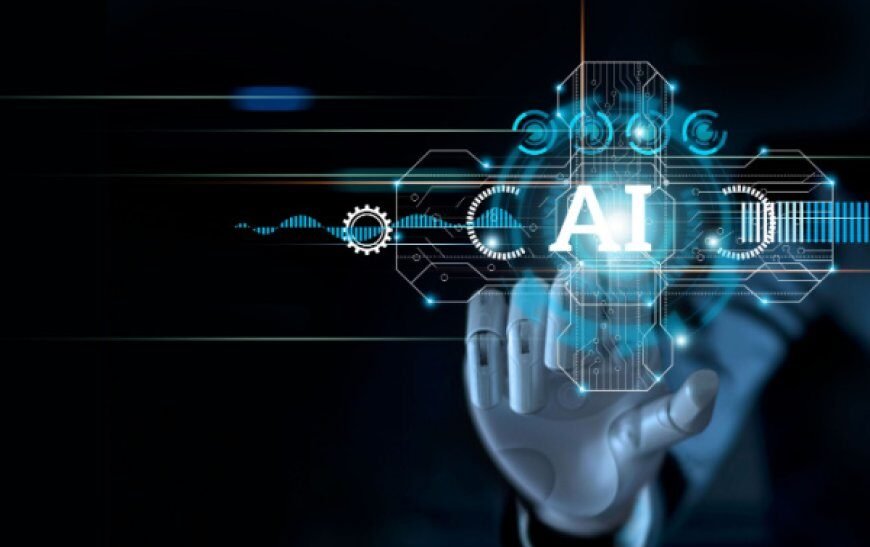Key Takeaways:
- MSAI programs equip students with advanced skills in AI, driving technological innovation.
- AI technologies are pivotal in various sectors, from healthcare to environmental conservation.
- Ethical considerations and responsible AI practices are crucial for societal advancement.
- The future of AI is promising, with continued growth and integration expected across industries.
Table of Contents:
- Introduction
- Education and Skills Development
- Driving Technological Innovation
- Societal Benefits of AI
- Ethical Considerations and Responsible AI
- Future Prospects
- Conclusion
Introduction
Artificial Intelligence (AI) is not just a technological marvel but a transformative force reshaping every aspect of our lives. From healthcare to finance, AI drives efficiencies, fosters innovation, and creates new opportunities. At the heart of this revolution are advanced educational programs like the Masters in Artificial Intelligence (MSAI), which are preparing the next generation of AI leaders. This article explores the role of MSAI in advancing technology and society, highlighting its contributions, challenges, and prospects.
The impact of AI on various industries is undeniable. As AI becomes more sophisticated, its applications in solving real-world problems are expanding exponentially. However, successfully integrating AI technologies requires skilled professionals understanding AI’s technical and ethical aspects. This is where MSAI programs come into play, providing the necessary education and training to develop AI solutions that can bring about significant positive changes in society.
Education and Skills Development
The rapid advancements in AI technologies necessitate a workforce well-versed in cutting-edge practices and methodologies. MSAI programs are designed to provide students with in-depth knowledge and hands-on experience in AI. Graduates of these programs are equipped with the skills to develop and implement complex AI systems, contributing significantly to technological progress. For instance, a Master in Artificial Intelligence prepares individuals to tackle real-world problems using machine learning, natural language processing, and neural networks.
Moreover, the curriculum in MSAI programs often includes ethical considerations and the societal impacts of AI, ensuring that graduates are technically proficient and socially responsible. This comprehensive approach ensures students are well-prepared to leverage AI for the greater good. Courses typically cover a broad range of topics, from the fundamentals of AI algorithms to advanced subjects like deep learning and AI ethics, providing a balanced and holistic education.
Driving Technological Innovation
AI is a catalyst for technological innovation across numerous industries. AI algorithms predict disease outbreaks, customize patient treatment plans, and even assist in complex surgeries in healthcare. In finance, AI drives predictive analytics, fraud detection, and automated trading systems. The environmental sector benefits from AI through advanced modeling techniques for climate change predictions and wildlife conservation.
MSAI graduates are at the forefront of these innovations. Their expertise allows for developing more advanced and efficient AI systems, pushing the boundaries of what technology can achieve. Industries can operate more efficiently and effectively by continually improving and implementing new AI technologies. For instance, in the healthcare industry, AI-powered diagnostic tools can analyze medical images with high accuracy, aiding doctors in the early detection of diseases and potentially saving lives.
Societal Benefits of AI
The societal implications of AI are profound and far-reaching. AI technologies can solve some of the world’s most pressing problems. For example, AI-driven platforms can enhance education by providing personalized learning experiences, making education more accessible and practical. AI can improve urban planning, traffic management, and public safety in the public sector.
AI’s ability to process vast amounts of data quickly and accurately means it can provide insights that would be impossible for humans to derive independently. These insights can lead to better decision-making and more effective problem-solving in various societal contexts. As AI becomes more integrated into our daily lives, its positive impact will continue to grow. For instance, AI-powered applications can help governments and organizations allocate resources more efficiently, address social inequalities, and develop sustainable solutions for environmental challenges.
Ethical Considerations and Responsible AI
As AI becomes more prevalent, ethical considerations become increasingly important. Data privacy, algorithmic bias, and the digital divide must be addressed to ensure that AI technologies are used responsibly. MSAI programs often incorporate courses on AI ethics, equipping students with the knowledge to navigate these complex issues.
Responsible AI practices involve creating transparent, fair, and accountable systems. This includes developing algorithms that do not perpetuate biases and ensuring that AI technologies respect user privacy. By fostering a culture of ethical responsibility, MSAI graduates can contribute to developing AI systems that benefit society. For example, ethical AI practices can help prevent discriminatory outcomes in hiring processes, lending decisions, and law enforcement applications.
Future Prospects
The future of AI is promising. With continued advancements in technology and increasing applications, AI is set to become even more integral to our daily lives. Industries will continue to invest heavily in AI technologies, creating numerous job opportunities for MSAI graduates. These individuals will be at the vanguard of innovation, leading projects that could revolutionize the healthcare and entertainment sectors.
Furthermore, interdisciplinary collaboration will likely become more common as the multifaceted challenges of the future will require solutions that draw on diverse areas of expertise. As AI technology evolves, so will the educational programs designed to train the next generation of AI experts. Ongoing research and development will ensure that MSAI programs remain at the cutting edge, preparing students for the challenges and opportunities that lie ahead.
Conclusion
The role of MSAI in advancing technology and society cannot be overstated. These programs are essential for developing the skills and knowledge required to drive technological innovation and address societal challenges responsibly. As AI continues to evolve and integrate into various aspects of our lives, the importance of well-trained AI professionals will only grow. By promoting ethical practices and fostering a deep understanding of AI’s potential, MSAI programs pave the way for a brighter, more innovative future.
In conclusion, the future of AI is bright and filled with opportunities to enhance our world in countless ways. Through comprehensive education and responsible practices, we can harness AI’s full potential to benefit humanity, ensuring a more equitable and sustainable future for future generations.













